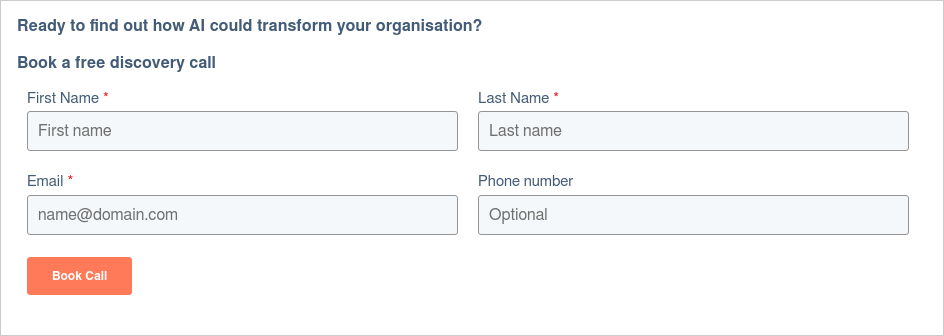How Volvo Set the Stage for AI-Enhanced Automation
Imagine the administrative burden of processing thousands of invoices and claims, each with handwritten notes, different formats, and often in multiple languages. This was the challenge faced by Volvo Group, one of the world's leading manufacturers of trucks, buses, and industrial engines. To overcome it, Volvo leveraged Microsoft Power Automate integrated with Azure AI Document Intelligence. Through this combination, they transformed a time-consuming, repetitive workflow into an efficient, AI-enhanced process, saving over 10,000 hours of manual work annually. The key here was using Robotic Process Automation (RPA) augmented with AI features—an approach that exemplifies how automation can evolve towards something more agentic.
RPA as the Foundation for an Agentic Future
The success at Volvo is just one example of how RPA, especially when combined with AI, provides a stepping stone towards the future of true AI agents. Unlike the rigid, rules-based processes typical of traditional RPA, the integration of AI—using machine learning models, natural language processing, or document intelligence—introduces flexibility and decision-making power. This blend enables organisations to manage complex tasks, process unstructured data, and make more nuanced decisions.
Leading RPA vendors such as Microsoft, UiPath, and Automation Anywhere are already embedding these AI features into their platforms. For instance, UiPath’s AI Center enables machine learning models to be plugged directly into automation workflows, while Automation Anywhere's IQ Bot processes unstructured data to bring further intelligence to automation. These integrations mark a significant step towards the agentic future that many predict for business processes—where AI agents autonomously navigate, learn, and adapt to achieve specific goals without predefined, linear workflows.
Not Yet Agents, But the Path is Clear
While these platforms don’t yet deliver the full capabilities of autonomous AI agents, the path towards it is clear and logical. Today, RPA tools augmented with AI can parse data, interpret text, and interact more intelligently with end users, but they still operate largely within fixed parameters. A true AI agent, on the other hand, would be able to adapt its behaviour autonomously, learn continuously, and make decisions based on evolving goals.
However, this gap is narrowing. As AI capabilities expand and integrate more seamlessly with RPA tools, the potential for bots to act autonomously will grow—making the step from enhanced automation to true agents a natural progression. Organisations can seize this opportunity by starting today, laying the groundwork for an agentic future.
How to Get Ahead of the Curve
-
Learn from RPA
Organisations that already use RPA can leverage their experience as a foundation for understanding more complex automation. The expertise in setting up workflows, integrating data sources, and optimising processes provides a solid basis for embracing more agentic technologies as they become available. -
Use AI-Enhanced RPA Tools Today
Tools like Power Automate, UiPath, and Automation Anywhere are already incorporating advanced AI features. Organisations can start by using these features to extend their RPA capabilities—adding intelligent document processing, predictive analytics, and natural language understanding to existing workflows. -
Prepare for the Agentic Evolution
The future of AI automation lies in agents that can create and update workflows autonomously based on evolving goals and contexts. Organisations that start incorporating AI into their automation efforts today will be well-positioned to take advantage of these agentic capabilities as soon as they become available, reducing the time to deploy and adapt. Moreover, organisations that do this will gain vital experience automating workflows, providing them with the knowledge and insights needed to understand how these advanced systems work and how they can be best applied to drive business value.
The Future: Automation Evolving Towards Autonomy
Imagine a scenario where automation systems no longer require explicit, linear workflows defined by humans. Instead, these systems can take a high-level business goal—such as "maximise customer satisfaction" or "minimise processing costs"—and autonomously design, manage, and adapt their own workflows to achieve that goal. This is the future that Microsoft, UiPath, and other RPA vendors are moving towards—a future where true AI agents can manage processes, adapt on the fly, and learn continuously without the need for human intervention at every turn.
By integrating these intelligent capabilities today, organisations can transform automation from merely handling repetitive tasks to becoming an autonomous partner that delivers strategic value. The shift from enhanced RPA to AI agents is already happening, with foundations being built right now for an agentic future.
Embracing the Future of AI-Enhanced Automation
The journey from RPA to AI agents is already well underway. Vendors like Microsoft, UiPath, and Automation Anywhere are blurring the lines between traditional automation and intelligent, adaptable workflows by adding AI features to their products. By leveraging these tools today, organisations can set the stage for an agentic future, where automation systems evolve beyond static, manual processes to become dynamic partners in achieving business goals.
As Volvo’s success shows, early adopters are reaping substantial benefits, and those who start now will be in the best position to capitalise on the future of AI-enhanced automation.
Start Building Your AI Strategy Today
Ready to start your journey towards an AI-driven future? Fill out the form below to book a discovery call and explore how your organisation can benefit from agentic automation.

Tags:
BlogTue, Nov 5, 2024



